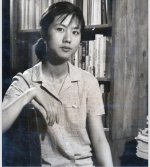redhead
Blahblahblah
What have been people's experiences with Su Tong? So far I've read Raise the Red Lantern and Rice and I'm less than impressed, although I did have extremely high expectations going into both.
Also, I read somewhere that the English translation to his The Boat to Redemption uses an early draft (like the second draft or something like that) instead of the final product. Apparently publishers couldn't wait to get it out, and while it's nice to see publishers be enthusiastic about translations, this sounds terrible. The translation managed to win the Man Asian literary Prize, but reception of it among readers has been...less than spectacular. It's a shame because apparently the Chinese version is considered to be Tong's magnum opus. Looking at the reception of his Binu and the Great Wall in China versus overseas, I suspect a similar thing happened there. In the past he's been considered for English prizes like the Man Booker International, I hope these awful translations don't prevent him from being nominated or winning in the future.
Also, I read somewhere that the English translation to his The Boat to Redemption uses an early draft (like the second draft or something like that) instead of the final product. Apparently publishers couldn't wait to get it out, and while it's nice to see publishers be enthusiastic about translations, this sounds terrible. The translation managed to win the Man Asian literary Prize, but reception of it among readers has been...less than spectacular. It's a shame because apparently the Chinese version is considered to be Tong's magnum opus. Looking at the reception of his Binu and the Great Wall in China versus overseas, I suspect a similar thing happened there. In the past he's been considered for English prizes like the Man Booker International, I hope these awful translations don't prevent him from being nominated or winning in the future.

